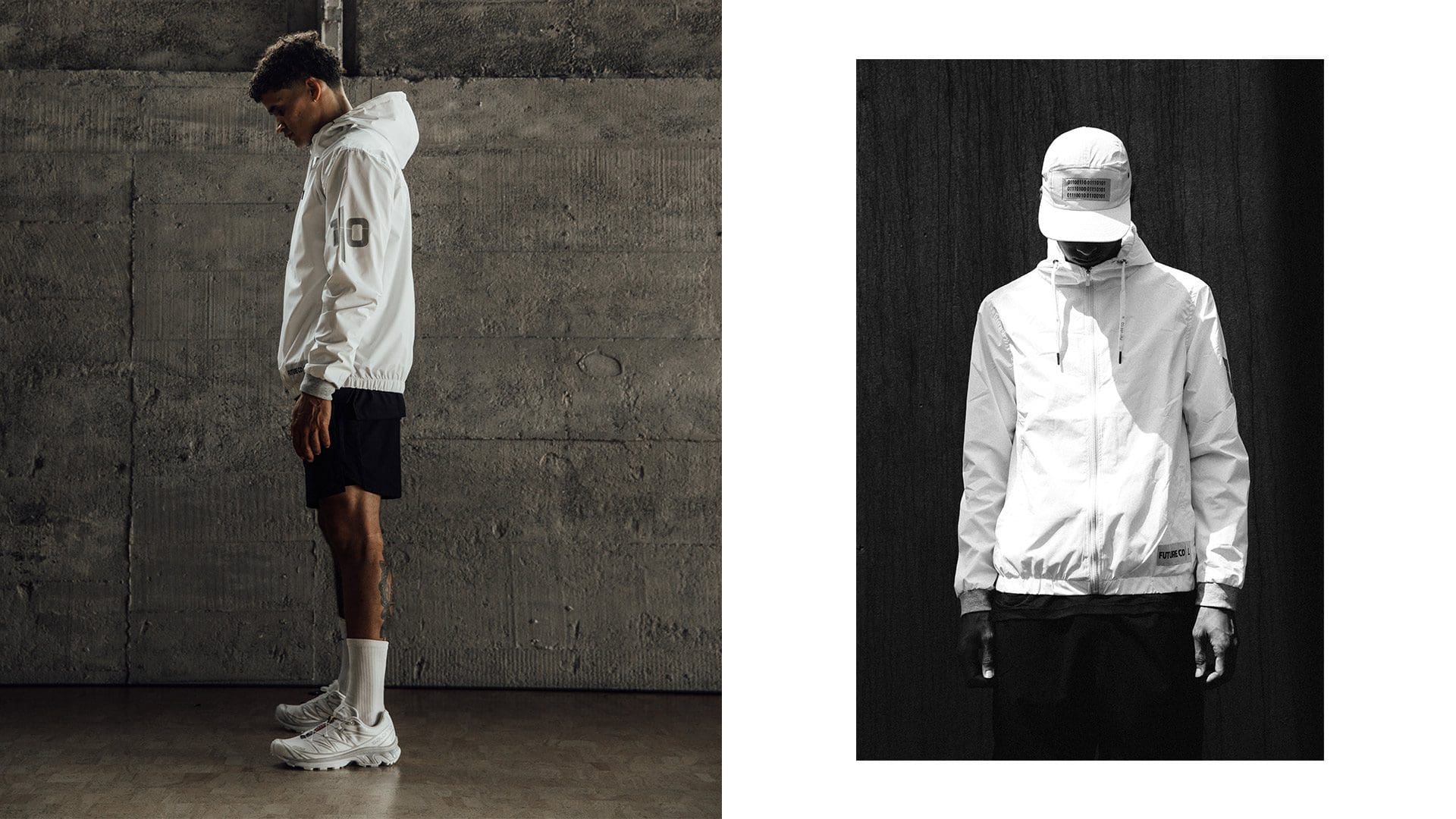Going Back To The Future Of Sustainable Sportswear
Back in the nineties when I was a kid, it was the coolest thing to have a bit of fluro green thrown into the outfit. Is there any life left in that fluro world?
I don’t want to give too much away, but Capsule Two will have a bit of that. It’s that inspiration from the past. We want to bring back some elements that worked and should still work, but because of trends, we often lose sight of what was good. It’s the whole value versus volume.
The reason why those trends exist is because it makes business sense. Is there a fundamental hurdle there in terms of creating a business around this sort of approach?
There is and it’s the reality. I’m not a nonprofit and I don’t see Future Co becoming that. We do provide donations. We do back good causes, through our partnerships with the New Zealand Forest Restoration Trust and Carbon Click, there is that element of giving, but you have to have a formula.
I’m the accountant myself so far and when you zoom out slightly away from the spreadsheet and look at the business model as a whole, there’s these design thinking principles that I often talk about. To make an innovative or a hot product, you want to be in the bullseye between desirability, feasibility and viability. Now there’s a new force or circle called ‘impact’, which is obviously the environment or social.
Desirability is, do customers want it? Would it fit their lives? Is it actually fixing a problem? Viability is the commercial side, I need this to obviously make commercial sense. It needs to make enough money for me to be able to sustain the business. I can’t obviously have a business running that’s loss making. I need to ensure it’s profitable so that I could reinvest in the business and make it a lot bigger, so I could provide my products and services to a whole lot more people.

Feasibility is more from a process perspective; can I make this happen? Do I have the right technology, the right systems, the right tools, the right people? You’re constantly looking at all of these things in abundance, in a way.
You can’t only look at viability. You can’t only look at the numbers because I’m not selling t-shirts here. I’m not getting a t-shirt made for $3, whacking a label on it and then selling it for $20 or$ 30 because it looks cool. I don’t think you have a unique, competitive advantage to be running that kind of business long-term.
Whereas obviously with us and our DNA, we’ve got a compelling business model through our purpose and where we’ve come from and the vision, in terms of where we want to be and where we want to take Future Co.
Oz is not going to save the world and impact climate change from selling a t-shirt or two from his little home office. We want to create a movement and we talk a lot about that. That’s obviously oriented around our members and customers, but also our neighbours, people across the street who are also in the same industry, people who are also making or retailing clothes.
Have a look at your business practices. This is not a time for competition. We want to collaborate, we want everybody to be able to do the right thing. If everybody just takes a little bit from what we’re doing and replicates it into their business practices, then collectively we’ve managed to achieve a great cause.
Do you feel like you are a new wave of entrepreneur coming through that has all of these considerations in place?
So much. Everything that I come across, read or hear recently links to the new age of consumerism and that people want to back a brand that has a purpose or has intentions that align with their values. Again, it’s no longer about, as I said, just selling something because it looks good.
Especially Gen Z, you talk to a lot of the younger demographic and they just love the story. They absolutely love the story. I feel like if you are starting something new, I’d hope you’d have a good purpose behind it. We often try to take shortcuts to make the extra dollar, but I just feel like it’s not sustainable in today’s age and where people’s mindsets are gravitating towards.
With that shift in consumer sentiment, it’ll just make financial sense to have the right impact mandate in place and the right purpose anyway. People are pretty conscious about greenwashing and they can see through a lot of a lot of stuff.
You’ve got to absolutely stay true. One thing that I’ve instilled from day dot with Future Co is transparency. We’re not a hundred percent there yet, but we are on a journey. We talk about that openly, in terms of our carbon footprint, in terms of our processes. We have a goal, we have an ambition and we absolutely want to get there.
There’s no point in saying that we’re carbon neutral and everything that we do is sustainable and eco-friendly, because people will call it out. You don’t want to create a false hope or stimulated hype behind a product, especially in the fashion industry, which is highly competitive and extremely crowded.

